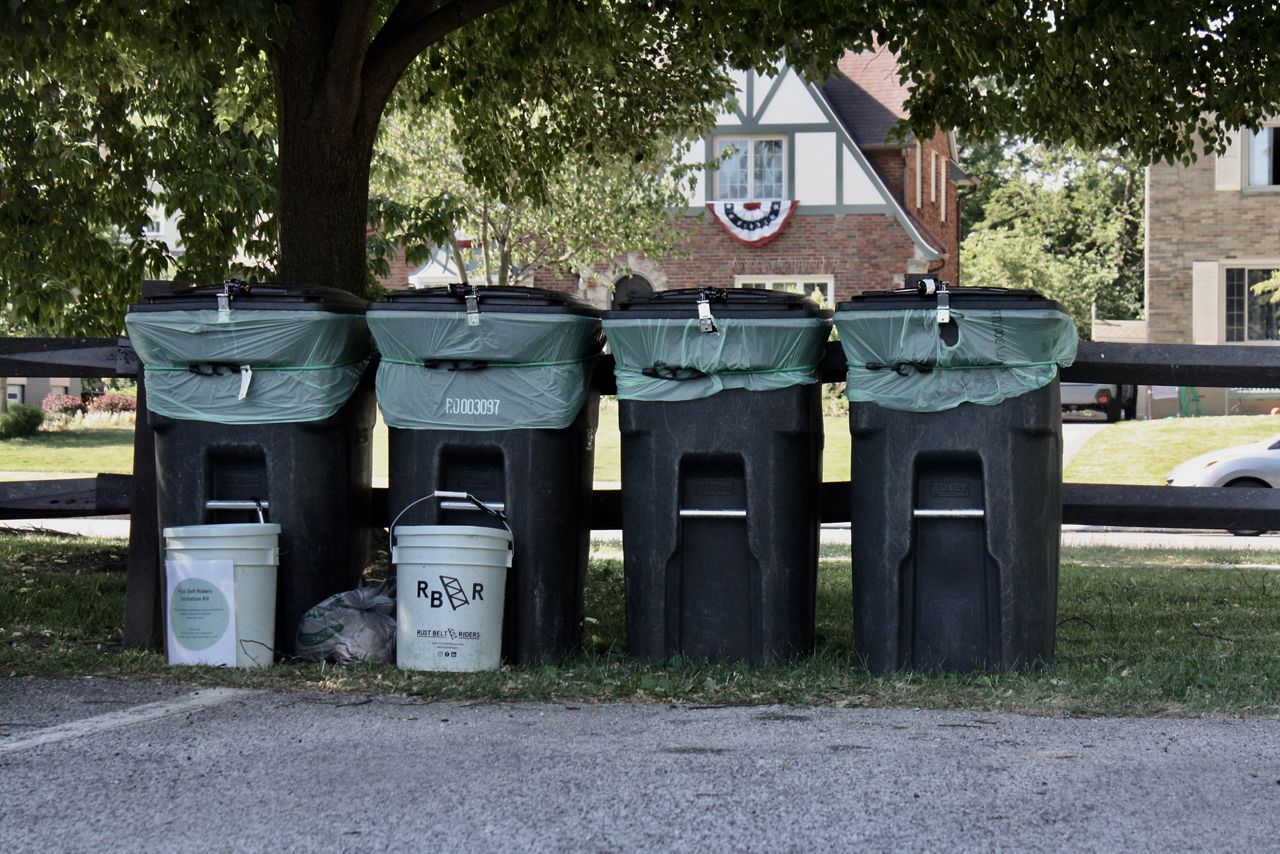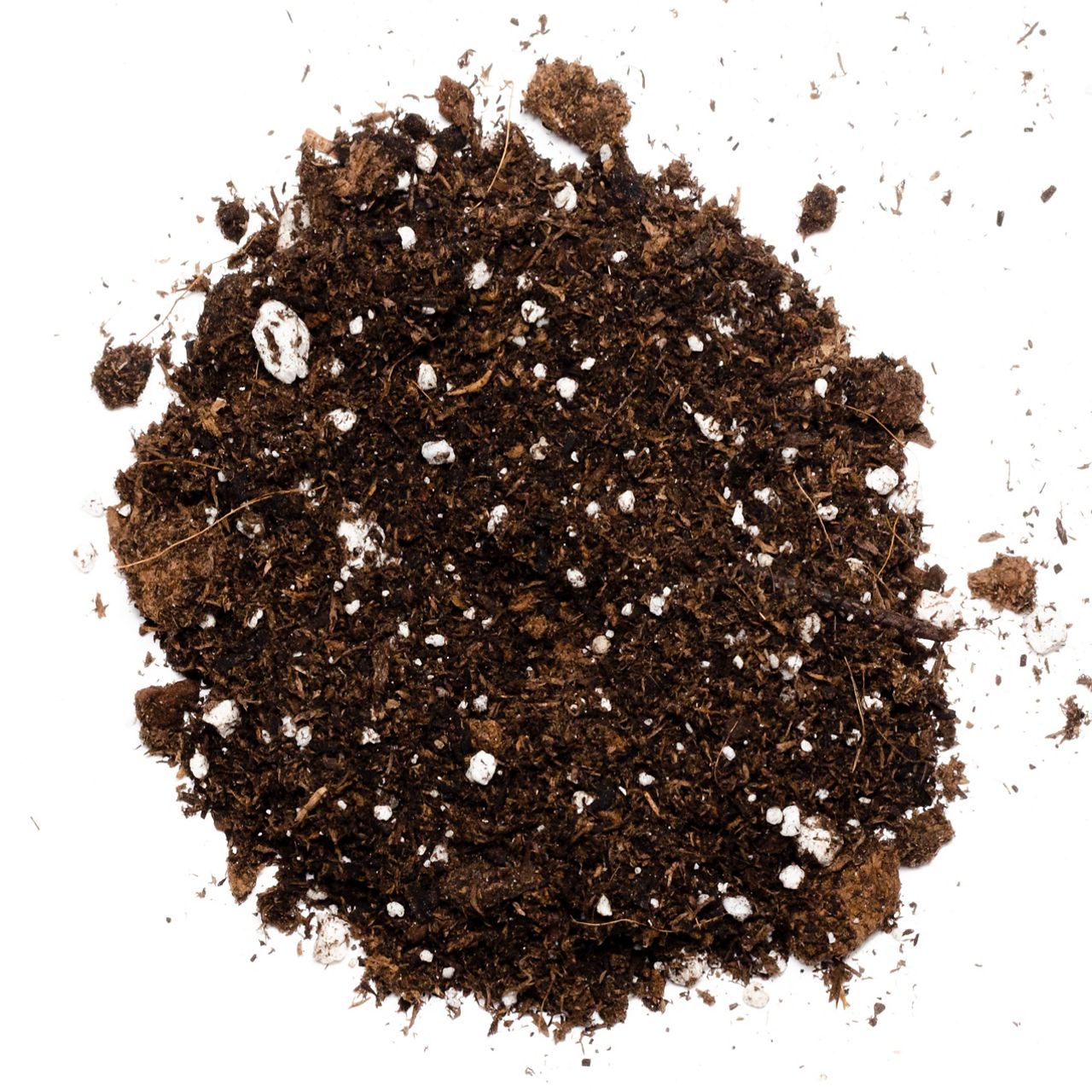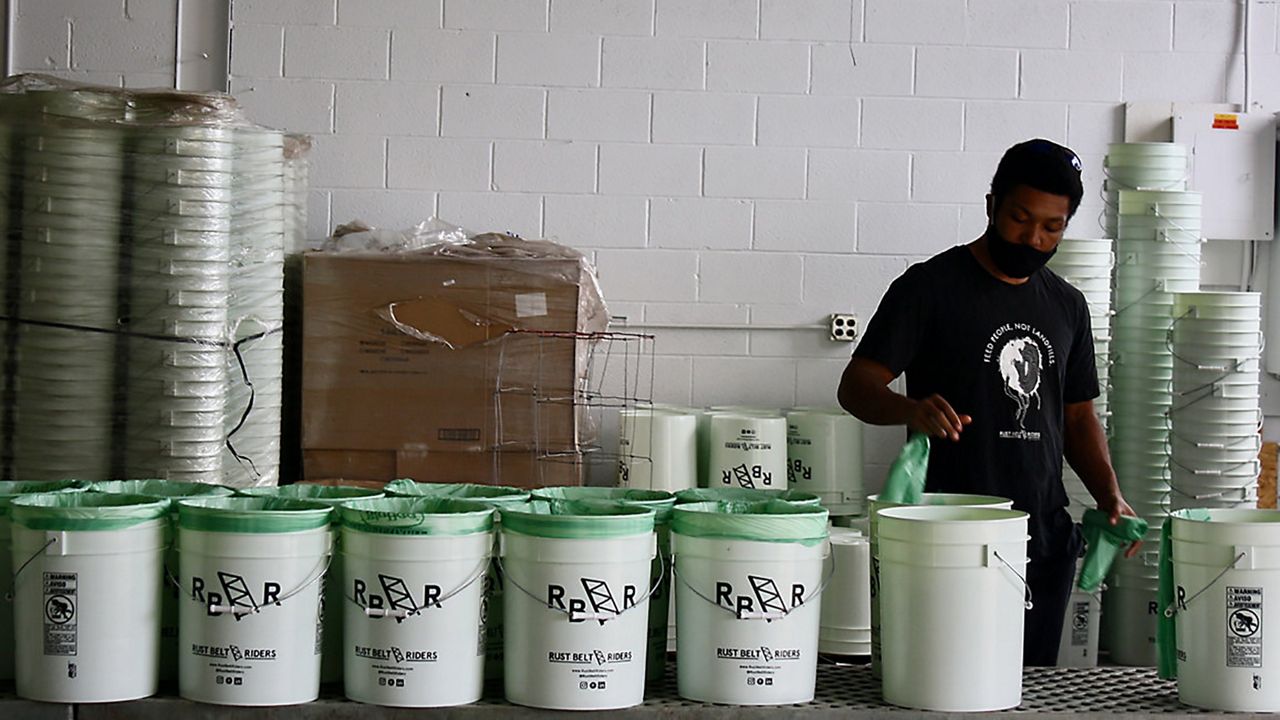CLEVELAND — Cleveland Heights residents now have the ability to recycle food waste at the Rust Belt Riders community drop-off location — a recycling service that’s catching on around Cuyahoga County.
The recycling company has set up bins at the Coventry PEACE Campus off Euclid Heights Boulevard for 24/7 food waste drop-off, the city told residents in its latest newsletter.

Rust Belt Riders, a young Cleveland company, has recycled food waste since 2014. The company collects the food waste and transforms it at its own compost facility, selling the mixture back to the public as enriched soil or compost material.
The company now has about 15 community drop-off locations around Cuyahoga County, said co-founder Daniel Brown.
“Essentially, we work with businesses, organizations and individuals to provide them with an alternative to landfills for food waste,” Brown said. “We do try and get the word out by partnering with community development groups or local governments to create awareness about these services, but they're strictly opt-in at the moment.”
Food waste is the single largest substance put into the garbage and sent to the nation’s municipal landfills every day, according to the U.S. Environmental Protection Agency.
In 2018, homes, businesses and institutions in the U.S. generated 63 million tons of food waste, comprising 24% all trash landfilled and 22% of incinerated trash, the EPA said. Food waste also generates methane, a powerful greenhouse gas, with municipal landfills the third largest source of methane emissions in the U.S.
Rust Belt Riders services both residences and commercial accounts, such as corporate offices, restaurants, cafes and juice bars. The comapny also works with small firms consuming only coffee and tea, Brown said. Its footprint is mainly Cuyahoga County, but the company is interested in helping any entity come up with a food-waste solution that fits.
“If anyone is eating at your place, you can work with us,” Brown said. “We like to think that there's a sort of customizable solution for any workplace that we can bring our services to because we think that food waste diversion should be as commonplace as recycling.”
Food-waste recycling
For individual residences, Rust Belt Riders offers two membership plans:
- Pick-up — Each week, receive a clean, lined five-gallon bucket with lid is delivered to your door when the bucket you filled with food waste is picked up
- Drop-off — Collect food scraps at home and bring them to a community drop-off bin you unlock with your membership pin.
For commercial accounts, the company creates customized plans based on the amount of food-waste generated, which is determined through a waste audit, the company said. At the end of the audit period, Rust Belt Riders provides a report, which enables business owners to understand whether food recycling is good fit.
Compost and soil

All the food waste Rust Belt Riders collects is taken to the company’s compost facility in Independence, Brown said. The compost is processed by the company’s sister operation, Tilth Soil, whose tag line reads “soils that heal.”
Tilth Soil produces several types of certified organic soil, Brown said, using Rust Belt Riders compost. The soil blends — Sprout, Grow, Bloom and House — range from potted plant soil to seed starter to raised-bed mix.
The soil can be shipped anywhere, Brown said.
“So we're really just trying to get people to try gardening or raising some plants if they haven't in the past,” he said. “And if you have grown or are a professional farmer, we think that what we're making is exceptionally high quality. And so it should make your life a little bit easier.”
With 16 workers, Rust Belt Riders is in the process of becoming an employee-owned company, Brown said.
The company started out using bicycles with a trailer on the back, hauling up to 300 pounds of food waste at a time, he said,
The company name was chosen to help Rust Belt residents turn their thinking away from the industries that caused climate change, Brown said.
“And toward one that envisions our region as the home for solutions for the next century, solutions that address climate change head-on and become models for the rest of the country to follow or learn from,” he said.
Visit the Rust Belt Riders website to learn more about food-waste recycling.



